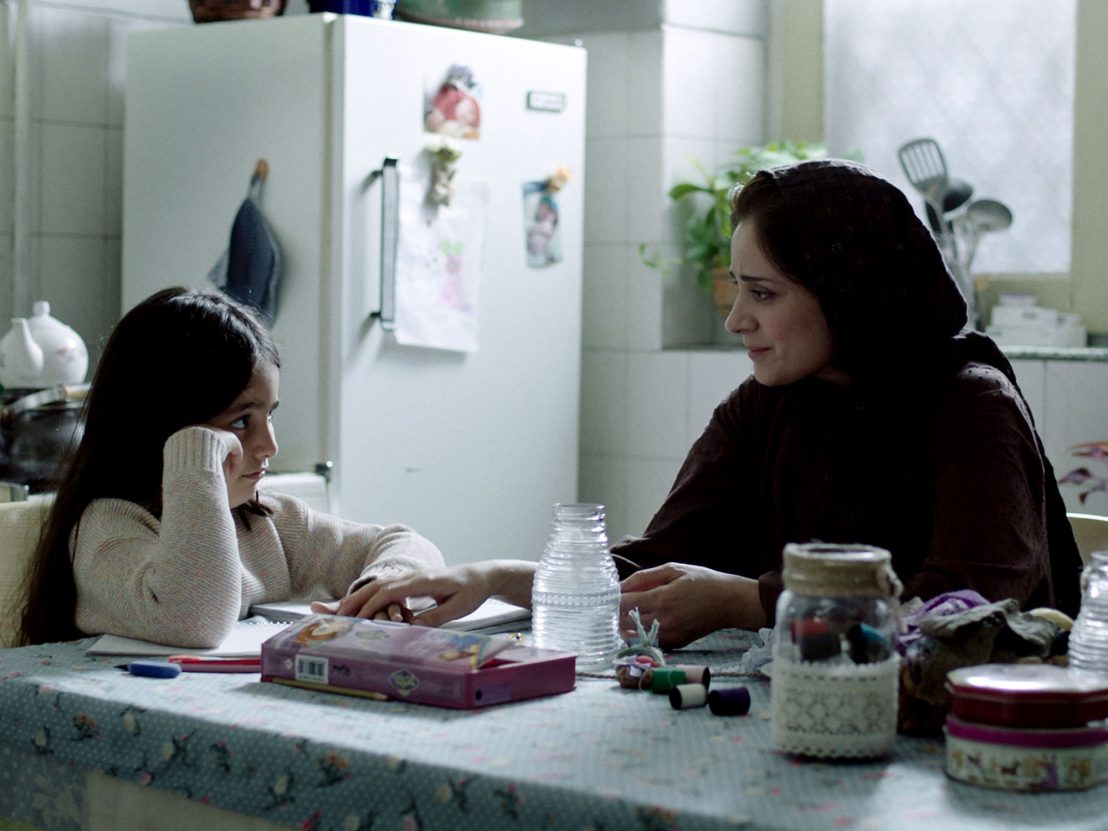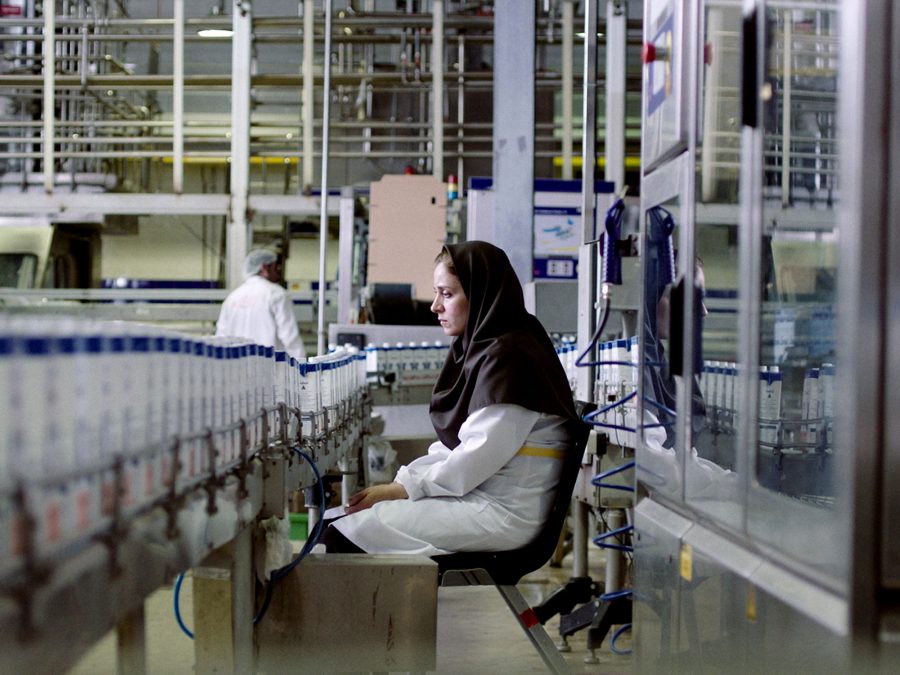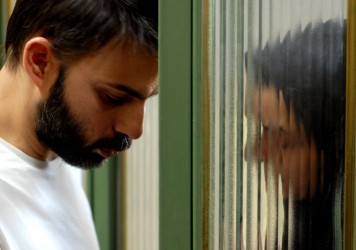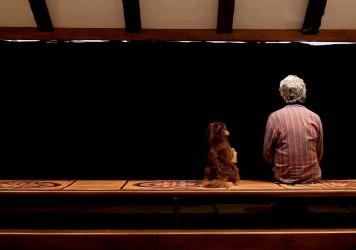
Behtash Sanaeeha and Maryam Moghaddam’s drama takes a dim view of Iran’s discriminatory justice system.
In 2020, Mohammad Rasoulof’s There Is No Evil became the third Iranian film in the past decade to win Berlin’s top prize, following Jafar Panahi’s Taxi Tehran and Asghar Farhadi’s A Separation. A critical drama about state-sanctioned murder, Rasoulof was handed a one-year prison sentence for what the Iranian authorities dubbed as “ propaganda against the system”.
One year later, it’s surprising to find another film about Iran’s inhumane justice system at the festival. However, Ballad of a White Cow isn’t riding the coattails of Rasoulof’s success, and announces directing duo Behtash Sanaeeha and Maryam Moghaddam as exciting new voices in Iranian cinema.
The film focuses on Mina (Moghaddam), a single mother struggling to raise her deaf daughter. “Of course nothing can replace your husband… but it was, after all, God’s will.” These half-hearted words of condolence stun Mina. A year after her husband was executed by the state, she has just learnt that he was wrongfully accused. She will be compensated with “the full price for an adult male”, but behind her tears a febrile anger begins to emerge, and she sets out to get a public apology from the judge who sentenced her husband.

Moghaddam is perhaps best known for her supporting role in Panahi’s Closed Curtain, but she takes centre stage here, delivering a quietly devastating performance. The injustice that burns at the heart of the film is neither stark nor ornamental. It is merely the wallpaper that furnishes Mina’s life, and throughout the film she carries herself with a passive mix of resignation and rage, as if already used to the flavour of her suffering.
In lesser hands this subtle approach might strip the film of its raw and elemental power, but Moghaddam instills a sense of the danger and powerlessness that comes from occupying a female body in a staunchly patriarchal society.
Whether it’s navigating the bureaucratic process of applying for welfare, or avoiding her father-in-law who insists she moves in with him and “raise her daughter with dignity” Sanaeeha and Moghaddam follow each unexpected turn of Mina’s journey with effortless grace. Then one day a stranger named Reza (Alireza Sani Far) knocks at her door. He claims he’s there to repay a debt he owes her late husband, but as their relationship develops it becomes clear that there’s something much darker that connects the two of them.
Built on the foundations of a closely guarded secret, Ballad of a White Cow shares more than a passing resemblance to Farhadi’s austere, ethical dramas. Yet Sanaeeha and Moghaddam also have a penchant for allegory and a keen eye for symbolism, with Mina’s inevitable decline brightened by the occasional glimmer of resistance. From her cinema-loving daughter Bita, named after Hajir Darioush’s 1972 film, to the way Mina wields her lipstick like a concealed weapon, there’s a sense that change is still something worth fighting for.
A well-plotted and tightly structured drama about guilt and responsibility, Ballad of A White Cow exposes how Iran’s ‘eye for an eye’ approach to justice has left society blinkered to the suffering of women.
Published 4 Mar 2021

By Julian White
This is a deceptively powerful movie by one of Iran’s finest directors.

Shubbak’s film programmer previews this year’s celebration of Arab culture.

Jafar Panahi’s second film made under house arrest is a riveting meditation on censorship and defiance.